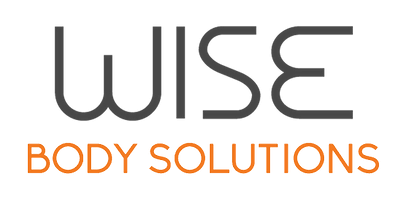How Stress Responses Impact Pain and Why Massage Therapy Helps
Stress is an inevitable part of human life—a sophisticated survival mechanism designed to protect and adapt us to challenges. However, when stress becomes chronic, it profoundly affects how our bodies process and experience pain. For residents of Plymouth, Michigan seeking effective stress management, understanding this connection opens the door to more effective healing approaches.
At Wise Body Solutions, we’ve observed how the four primary stress responses—fight, flight, freeze, and fawn—create distinct physical patterns that influence both tension and pain perception. This isn’t just theoretical knowledge; it’s practical insight that can transform your relationship with stress and discomfort.
Massage therapy for stress reduction works by directly addressing these automatic responses, helping your nervous system find balance and reducing the pain signals that often accompany chronic stress. Let’s explore how these patterns develop and why massage therapy in Plymouth, MI, offers such powerful relief.
The Four Stress Responses: How They Show Up in Your Body
Understanding your stress responses provides valuable insight into your pain patterns. These automatic reactions aren’t flaws—they’re sophisticated survival strategies that sometimes need conscious rebalancing.
Fight Response: The Tension Creator
When your nervous system activates fight mode, stress transforms into aggressive energy. Your body prepares for confrontation by:
- Tightening jaw muscles and grinding teeth
- Creating shoulder and neck tension
- Increasing muscle rigidity throughout the body
- Elevating heart rate and blood pressure
While this response can help you tackle challenges, remaining in fight mode leads to chronic muscle tension and stress-related headaches. Massage for pain relief specifically targets these areas of accumulated tension, helping your body remember how to relax.
Flight Response: The Restless Pattern
Flight response manifests as your body’s urge to escape or avoid perceived threats. Physical signs include:
- Restlessness and inability to sit still
- Shallow, rapid breathing
- Muscle tension from constant readiness to move
- Digestive issues from redirected blood flow
This constant state of readiness creates fatigue and muscle strain. Regular massage therapy helps calm this hypervigilant state, allowing your nervous system to downregulate.
Freeze Response: The Stuck State
Freeze response occurs when your nervous system essentially “plays dead” to avoid danger. This creates:
- Muscle rigidity and joint stiffness
- Shallow breathing or breath-holding
- Disconnection from body sensations
- Reduced circulation and lymphatic flow
Massage therapy in Plymouth, MI, particularly benefits freeze responses by gently encouraging circulation and helping restore the mind-body connection that trauma and chronic stress can disrupt.
Fawn Response: The People-Pleaser’s Physical Toll
The fawn response prioritizes others’ comfort over personal boundaries, creating:
- Chronic tension in neck and shoulders from “carrying” others’ emotions
- Fatigue from constant vigilance about others’ needs
- Compromised immune function from neglecting self-care
- Pain patterns from ignoring personal physical needs
Professional massage for pain relief helps individuals reconnect with their own bodies’ needs, providing the self-care that the fawn response often neglects.
The Stress-Pain Connection: Why Your Nervous System Matters
Your nervous system functions as an incredibly sophisticated alarm system, continuously scanning for potential threats. However, this protective mechanism doesn’t distinguish between physical dangers and emotional stressors like work deadlines, relationship conflicts, or financial concerns.
Modern neuroscience reveals that chronic stress creates neuroplastic changes—your brain literally rewires itself to maintain protective patterns. When your nervous system remains hypervigilant, it amplifies pain signals, making minor discomforts feel more intense. Think of it as a smoke detector that becomes so sensitive it alarms at the slightest provocation.
This is where massage therapy for stress reduction becomes particularly valuable. By providing safe, nurturing touch, massage therapy helps retrain your nervous system to respond more appropriately to daily stressors, effectively “recalibrating” your internal alarm system.
Empowering Your Healing Journey in Plymouth, Michigan
Understanding your stress responses transforms how you approach both stress management and pain relief. Rather than feeling helpless against these automatic patterns, you can develop conscious strategies for nervous system regulation.
Massage therapy for stress reduction offers a powerful tool for this transformation. At Wise Body Solutions in Plymouth, Michigan, we specialize in helping clients understand their unique stress patterns and develop personalized approaches to healing.
Our experienced therapists understand the intricate connections between stress, nervous system function, and pain perception. We don’t just address symptoms—we help you develop a more resilient, balanced relationship with your body’s natural protective mechanisms.
Take the Next Step Toward Balance and Relief
Your journey toward better stress management and pain relief begins with understanding your body’s wisdom. The stress responses that sometimes feel overwhelming are actually sophisticated survival tools that, with proper support, can be rebalanced for optimal wellbeing.
Ready to experience how massage therapy can transform your relationship with stress and pain? At Wise Body Solutions in Plymouth, Michigan, we’re committed to providing the personalized, compassionate care your body deserves.
Schedule your consultation today at (734) 548 6294 and discover how professional massage therapy can help you find the balance, relief, and vitality you’ve been seeking.

